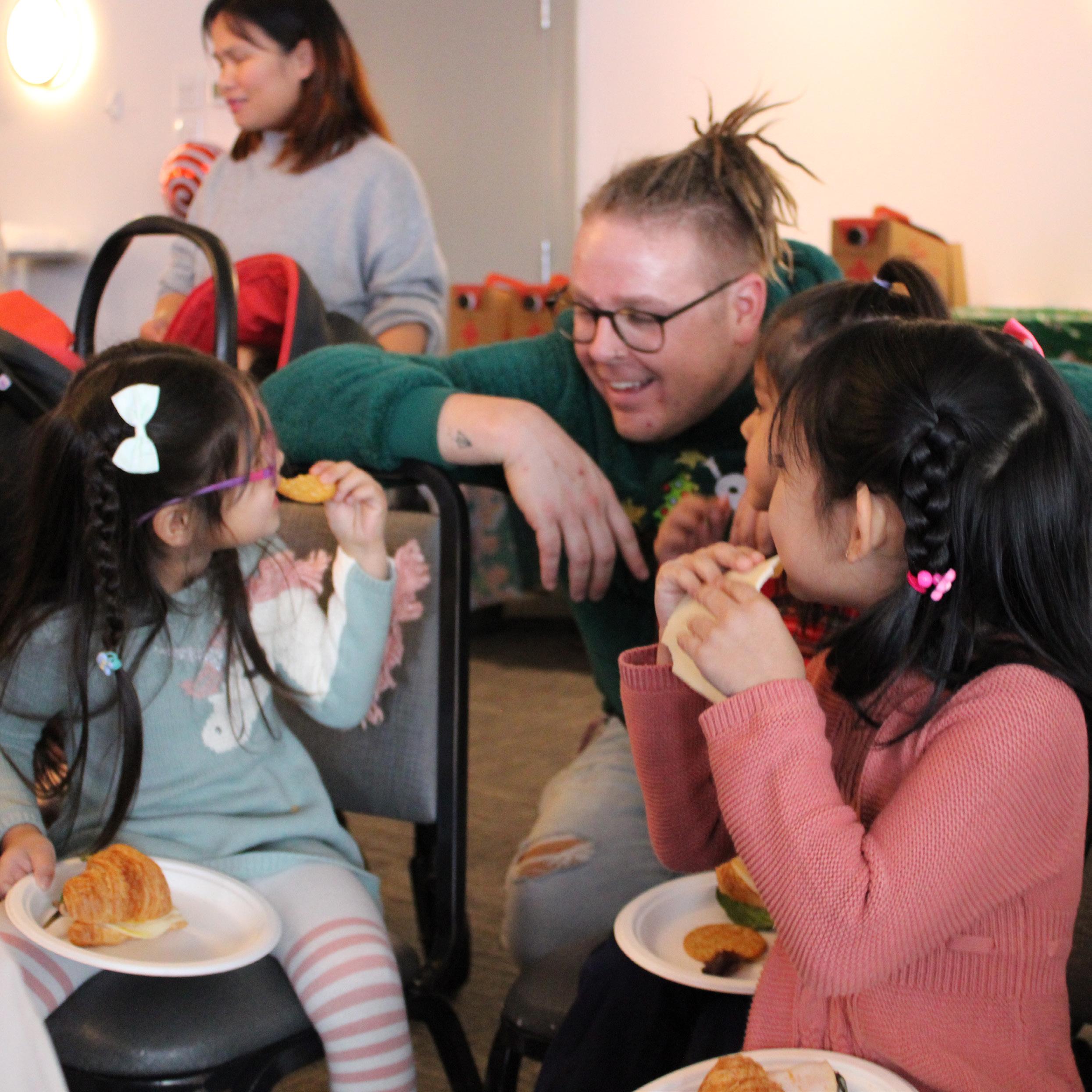Blueprint for the Future
Staying True to our Roots
Building good mental health and well-being so everyone can thrive in their community.

Report to the Community 2023-2024

Building good mental health and well-being so everyone can thrive in their community.

Report to the Community 2023-2024
Demand for mental health services has never been higher, yet there is a critical shortage of treatment beds for young people in Alberta. The urgency is clear as mental health challenges become more acute.
Wood’s Homes’ blueprint for the future addresses this need by expanding our capacity to serve young clients and their families. We are building new facilities, starting with Cottage E (pictured here) at our Parkdale campus.
This therapeutically inspired building will offer contemporary immersive care, new initiatives, and critical mental health programs in our community.
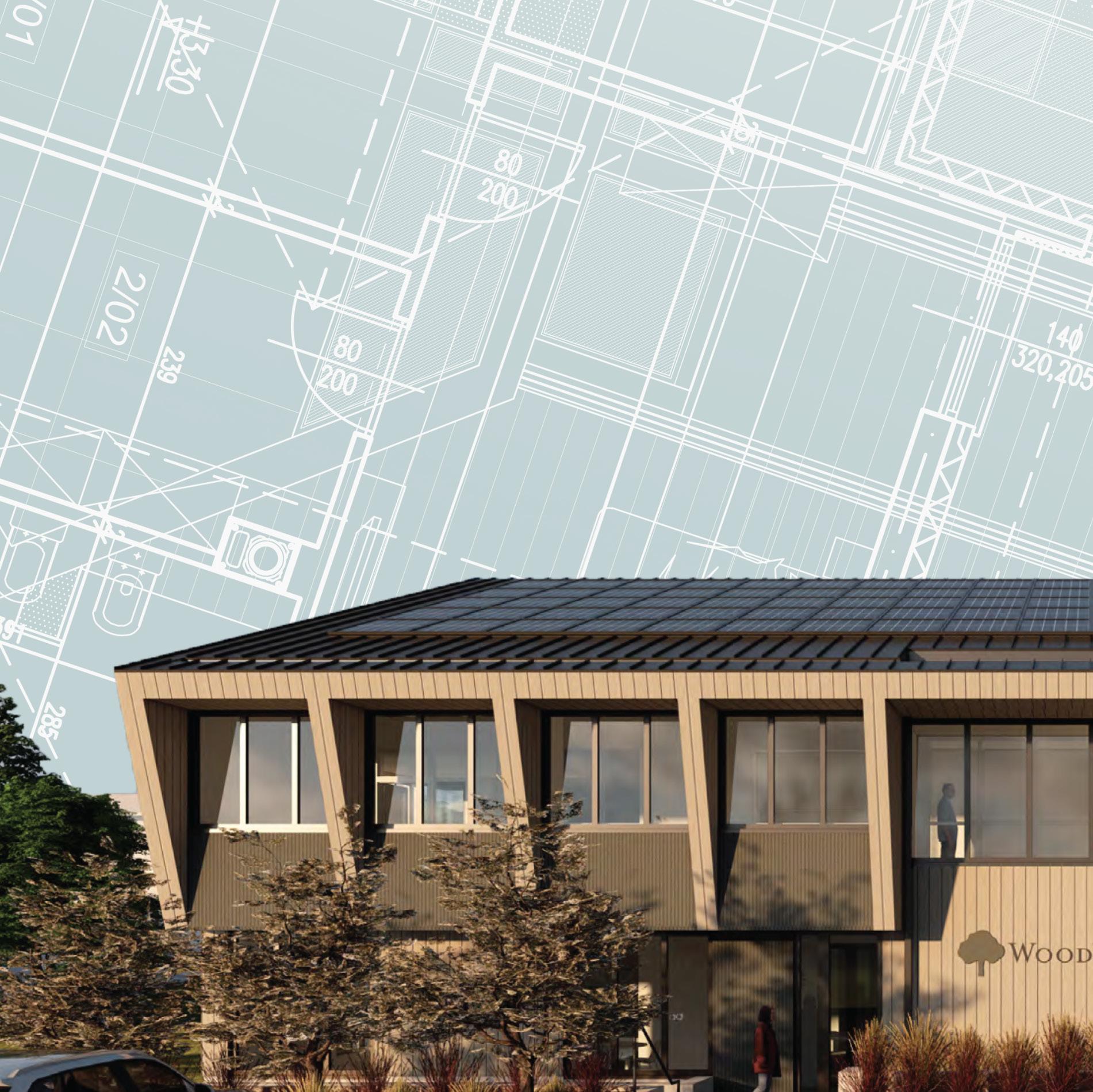
Opening in the fall of 2024, Cottage E will add 10 beds, increasing on-site capacity to 42 clients.
Next, we will focus on our historic Bowness campus. This modernization project will replace aging infrastructure with four new therapeutic care homes, increasing on-site capacity to 40 clients.
These long-overdue facilities will expand our live-in care capacity by nearly 30 per cent. They will provide therapeutic, safe spaces for healing, and culturally appropriate places for Indigenous gatherings, teachings, and ceremonies.
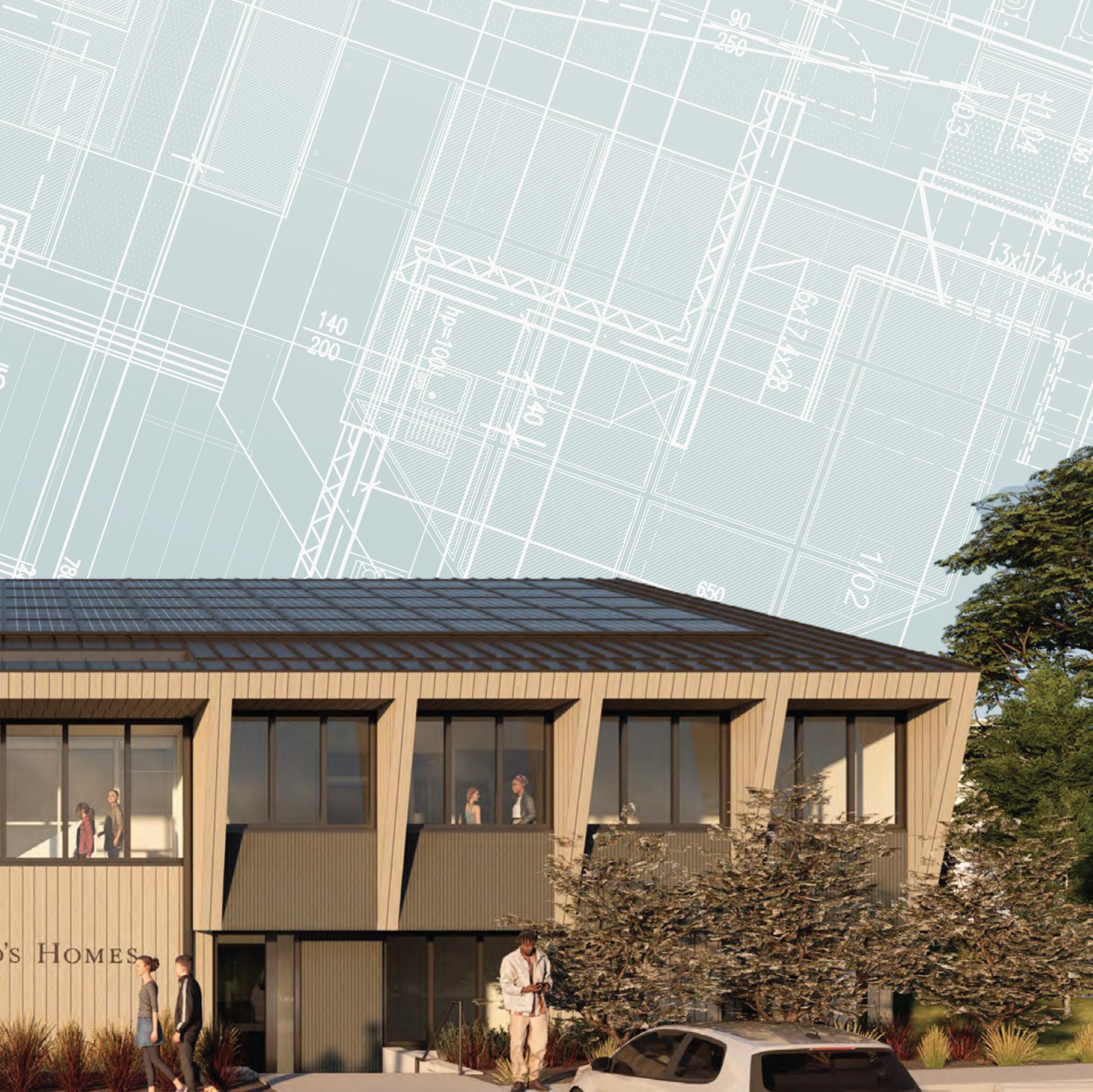
Our ‘Through it All’ capital campaign aims to raise $40 million to replace outdated facilities and increase capacity for mental health treatment. This crucial initiative will significantly impact the lives of those we serve. We are grateful to the provincial government for its $2-million contribution to date.
Learn more at woodshomes.ca/throughitall.

Wood’s Homes is proud to be a provincial organization. We humbly acknowledge the many First Nations and Métis districts from every part of the province. We acknowledge their contributions and responsibilities as caregivers to the lands they have walked since time immemorial. We are all treaty people, and Wood’s Homes is committed to coming together in a good way that builds good relations and community for all people.

2024 marks Wood’s Homes’ 110 anniversary! It’s hard to believe it’s been a decade since our centennial celebration, which drew alumni from across North America.
As I look through our history books, I can’t help but appreciate this agency’s growth, something that continues today. With 40+ programs and services, our reach now extends across the province.
Through it all, our mission remains the same: To build good mental health and well-being so everyone can thrive in their community.
This report outlines our ‘blueprint for the future,’ focusing on providing top-tier mental health services, navigating societal changes, and prioritizing safety. Our blueprint is embedded in the Strategic Plan created in May 2022, and we regularly measure our progress.
Among this year’s achievements, I am particularly proud of our enhanced Safety Management System. We’ve implemented many new learnings and have applied for a Certificate of Recognition (COR), for which we are unique in our sector.
The most important history is the history we make today.
We were awarded Exemplary Standing from Accreditation Canada for the fourth consecutive time, an achievement which wouldn’t have been possible without the remarkable efforts of many internal and external groups. This independent review keeps us on our toes.
- Henry Ford 4
In January, we opened the Lethbridge Opportunity Hub (see page 18 for more), and recently launched four new programs in Lethbridge and Calgary, reflecting our commitment to offer children and young people Community Group Care.
Construction of Cottage E on our Parkdale Campus is nearing completion. This 10-bedroom facility, our first therapeutically designed building, will serve young people living with complex mental health needs. Next, we turn to our historic Bowness Campus with plans for four new buildings.
This agency continues to flourish because of the incredibly hard work of our staff and the ongoing support of this generous community.
Thank you all,

Bjorn Johansson Chief Executive Officer, Wood’s Homes

Two years can feel like a long time if you’re doing something arduous or boring. But, as I mark my second year as board chair of Wood’s Homes and the Wood’s Homes Society, I can confidently say that couldn’t be further from the truth.
I’ve greatly appreciated being part of the Wood’s Homes family, and learning more about mental health treatment services. As mental health issues continue to rise in Canada and globally, it’s reassuring to know that Wood’s Homes is expanding its capacity to meet these demands.
An organization doesn’t reach 110 years without being strong, courageous, and innovative. And following a clear roadmap - such as our 2023-2028 Strategic Plan - is vital to our success. Writing a plan is one thing, sticking to it is another, and I am proud of our leadership team for keeping us on track.
The Strategic Plan also focuses on enhancing our Proud, Healthy, and Inclusive Workplace Culture. With this, our People and Culture Department has modernized staff-development systems, including a new Learning Management System and an improved onboarding process.
A Cultural Knowledge Framework is also in the works to enhance training and hiring practices, and soon all staff will undergo formal Diversity, Equity, and Inclusivity training. Wood’s Homes is committed to supporting First Nations communities in their pursuit of greater sovereignty and self-governance in mental health treatment.
In terms of new and innovative services, we recently launched Community Group Care programs and the Lethbridge Opportunity Hub.
I’m grateful to my fellow board members, the leadership team, and our CEO Bjorn Johansson for their guidance and support.
I can’t wait to see what the next year brings!

Brenda Cherry Chair of the Board,
Wood’s Homes

Wood’s Homes is committed to continuous growth and improvement, driven by our mission to build good mental health and well-being for all. Our Strategic Plan is a roadmap for realizing this vision, ensuring that we remain a leader in mental health services for years to come.
Key goals include:
• Actively engaging stakeholders to offer input, insights, and direction.
• Updating our Mission, Vision, and Values statements.
• Developing a progressive Strategic Plan to embrace Wood’s Homes’ future.
• Creating measurable goals and deliverables.
The creation of the Strategic Plan 2023-2028 began in May 2022 and involved extensive collaboration with our partners, funders, clients, donors, volunteers, and community leaders. This participatory process ensured that our plan reflects a shared vision for the future.
Strategic priorities are to:
1. Increase our impact on mental health and wellness by expanding our range of programs and services to meet the diverse needs of children, young people, families, and adults.
2. Support a proud, healthy, and inclusive workplace culture by fostering a supportive, collaborative, and respectful environment for all staff.
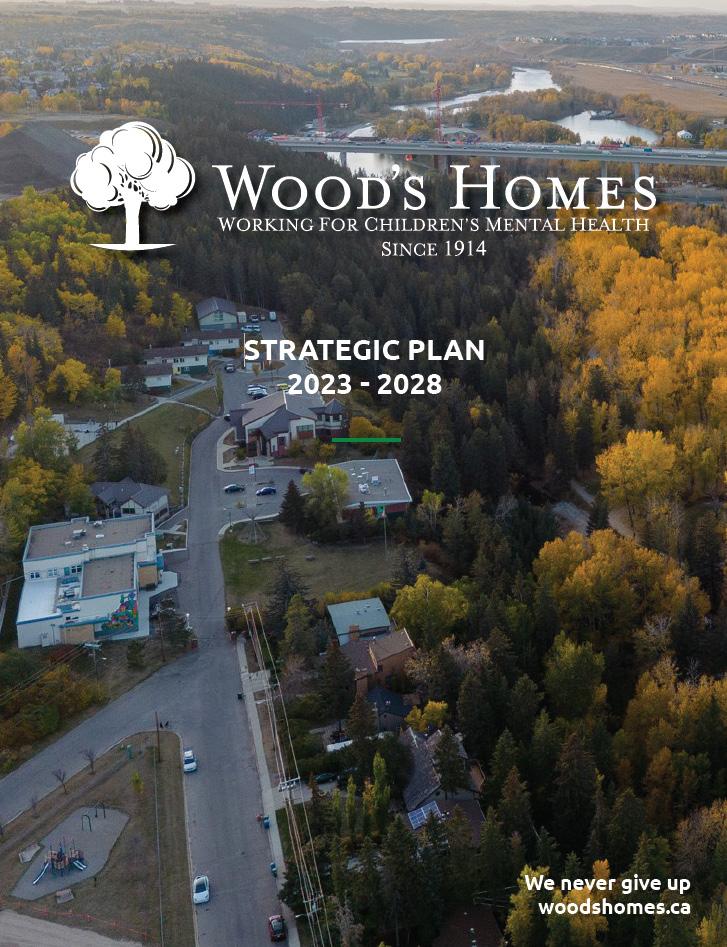
3. Promote responsive practices by ensuring they are thoughtfully inclusive and culturally sensitive.
4. Become a preferred venture and community partner by building and maintaining strong relationships with government, corporate, and community partners.
5. Reconfigure infrastructure based on best practices by modernizing our facilities to create safe, welcoming, and therapeutic spaces.

Children, young people, and families growing through trusted mental health services.
Wood’s Homes builds good mental health and well-being so everyone can thrive in their community.
Wood’s Homes values human beings and the place they occupy in the world at any given moment. Our guiding principles include:
• We value recognizing and responding to everyone with dignity, integrity, and respect.
• We value being responsive, leaning into the difficult, and learning something new.
• We believe exceptional treatment and safety go hand-in-hand.
• We value reducing the stigma and promoting the importance of good mental health.
• We value the actions of Truth and Reconciliation in order to make changes that connect children, youth, families and communities.
• We value the strength of diversity and inclusivity.
• We acknowledge and value the importance of community and nurturing connection to culture.
• We value never giving up.

Each year, Wood’s Homes surveys as many clients as possible about their experiences with our services – what worked well and what could be improved.
The Client Experience Survey includes four themes:
• Community and culture
• Help and skills received
• Program qualities
• Staff qualities
In 2022, we received and processed over 300 responses, including 243 qualitative responses from 187 clients or family members. This survey provides direct insights into client experiences.
Community and culture:
“For the first time, I felt human and was heard. There was no judgment, and I always felt safe and valued. Things were going to work out.”
“…they provide good programs to connect me with my culture, and I’m thankful for that.”
Help and skills received:
“It taught us a lot about parenting skills and techniques for different situations.”
Staff qualities:
“Truly one of the best and most supportive persons I’ve met is [staff]! She goes above and beyond for my daughter and me, always checking in and providing outside resources for extra help! One of my favourite parts about Wood’s is they are so relaxed and never judgmental of anything you go through.”
• Provide an anonymous way to discuss experiences if clients are uncomfortable sharing directly with staff.
• Collect client feedback semi-annually instead of annually to ensure it reflects current experiences.
• Discuss client experiences within programs to keep staff informed and improve experiences in real time.
• Increase staff in programs with high-acuity clients to prevent burnout and better meet client needs.
• Improve communication between staff, clients, and families through consistent meetings to educate and involve all in the treatment process.
Northwest 3,111
Northeast 2,718
Southeast 2,244
Southwest 1,920
Unknown 720 TOTAL 10,713

Other Areas of Alberta 1,036
Lethbridge 165 Fort McMurray 30
1,231
Calgary)
Location unavailable: 1,406
935 calls were received from other agencies who use our call//text/LiveChat services to ask for resources or other counselling-related information.
Wood’s Homes earned Exemplary Standing status from Accreditation Canada in July 2023 – for the fourth consecutive time.
Surveyors assess our services against national standards, reviewing governance, leadership, risk management, infection prevention and control, and medication management. This rigorous process, which occurs every four years, involves staff, volunteers, board members, clients (past and present), funders, neighbours, and community partners.
0 TOTAL 91 (excludes Alberta)
This recent survey included programs in Lethbridge, Eastside Community Mental Health Services, the Lighthouse and U12 programs, and the Inglewood Opportunity Hub.

CEO Bjorn Johansson says the results are “a reinforcement of our commitment to ongoing quality improvement to improve our services and our internal operations, activities, and workplace culture as an organization.”
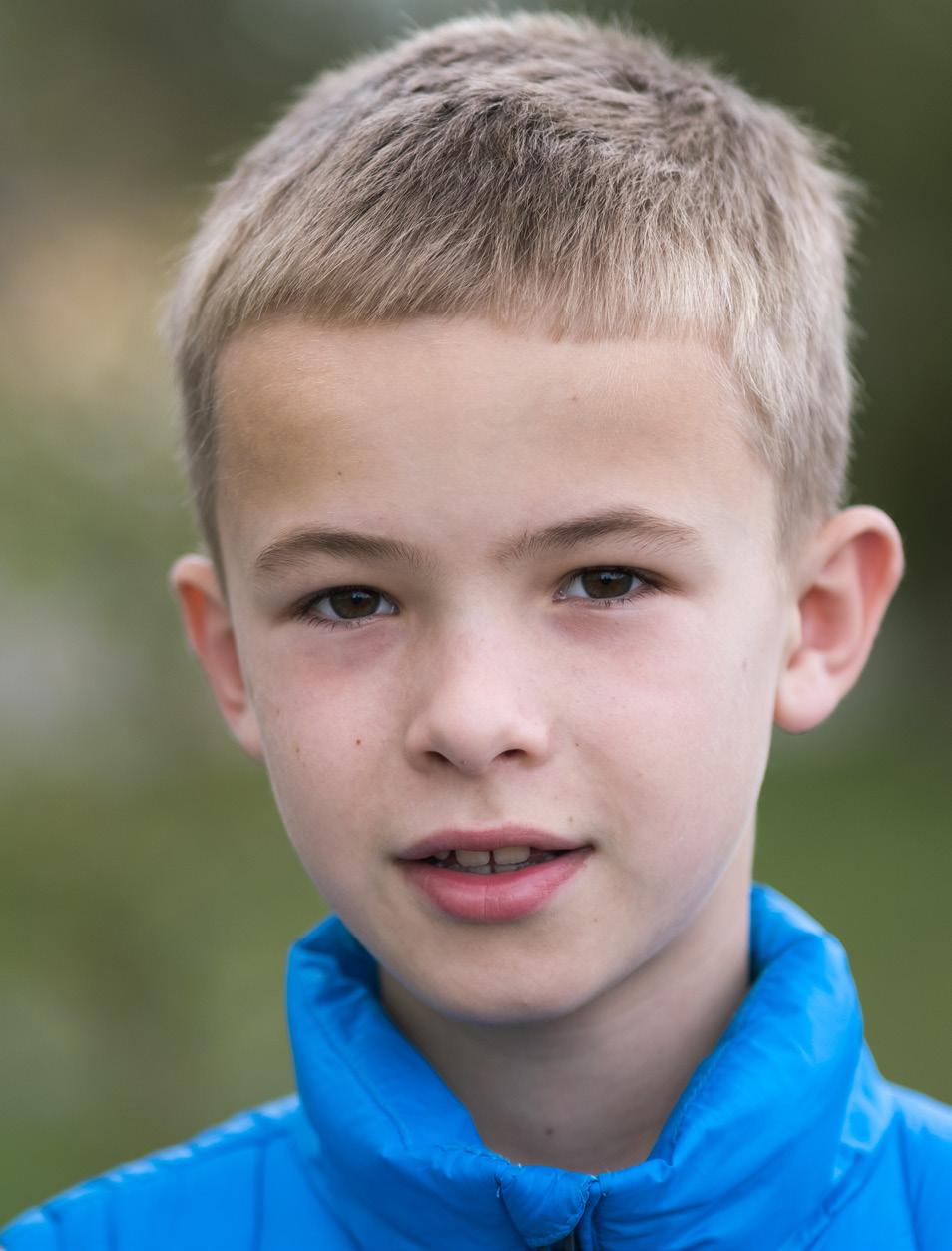
Client names and pictures have been changed in the following stories of hope.

Nine-year-old Ben has offered to talk about being in a Wood’s Homes live-in treatment program. He’s chatty, fidgety, and curious, but also guarded and cautious.
When asked to speak about his family, he simply says, “No.”
His response is understandable given the trauma he has endured. Ben has been with Wood’s Homes since he was five, after being placed into care because of his family’s struggles. It didn’t take long for this placement to break down because of his complicated needs. He was then placed in a Wood’s Homes’ live-in treatment program, an intensive therapeutic service for children with mental health and medical needs.
Ben’s trauma includes abuse and neglect, after being locked in his bedroom for four years. Staff have worked tirelessly to rebuild his trust and show him there are caring adults who will not hurt him.
In the summer of 2023, Ben transitioned to another livein treatment program: a warm, cosy house for children whose previous placements have failed. Although he has made significant progress in expressing his feelings, he still needs extra support. Wood’s Homes provides a continuum of care, with professionals working together to promote healing. Ben is regularly seen by a psychiatrist and is awaiting therapeutic counselling.
“He actually gives us hugs now and likes to snuggle at bedtime,” says the program supervisor. “That’s a huge step forward.”
Bedtime remains challenging for Ben, who spent years not knowing what was happening outside his locked bedroom door. “He still cries at night and misses his mom,” the supervisor adds.
Thanks to staff efforts, Ben now recognizes his fears and is open about his feelings. “I’m listening to my body,” he says proudly. He has learned to be more honest and better at asking for what he needs, often writing down his feelings.
When asked if he has a wish, he softly says, “I wish I could go back to my mom.”
Unlike other children who go home on weekends, Ben often stays behind. To help, the team found a temporary respite family for Ben to visit on weekends. “He loves them, and they love him too,” says the program’s youth and family counsellor. There is hope he can find a family interested in adoption.
“We’re here for them before they get to their forever home. I want them to look back and remember this place as a fun group home,” says his counsellor.
When asked what he likes best about the program, Ben says, “The other children. They are my best friends because they’re kind.”
Ben attends school in the community with his program “siblings,” making it easier when classmates ask about brothers and sisters. Staff work closely with his teacher to make accommodations, such as late entry to avoid the noisy and crowded halls (as Ben does not do well with the distraction). He loves playing games and enjoys eating strawberries. And, like any other child, he grumbles about having to clean his room every day.
On this day, a new client is arriving. The supervisor prepares the children, who are playing with their trucks on the floor.
“Now what do we say to Jamie when he gets here?” she asks.
“We make him feel like family, and that this is his home,” they shout back.

We’re here for them before they get to their forever home.
- Wood’s Homes Youth and Family Counsellor


Claire’s daughter sat motionless on the kitchen floor. The 14-year-old was pale, non-verbal, and pretty well comatose. Emergency services were on the way. Claire watched as EMS settled her daughter into the ambulance for the drive to hospital. Anna wasn’t there long before she was transferred to another hospital where she would stay for the next two weeksincapacitated by her anxiety. Anna was diagnosed with selective mutism and oppositional defiant disorder: both serious mental health challenges which also involve self-harming.
Claire admits she was overwhelmed watching her daughter who looked like “a hollow shell of herself - she was right out of it.” She was desperate to get help.
After her two-week stay, hospital staff admitted there was not much else they could do for Anna, who was displaying signs of trauma. “But they don’t do trauma informed care there,” says Claire, adding that she feels it’s “the linchpin” to healing.
Anna was prescribed drugs while in hospital, but “we have a lot to learn about genetics and medications,” says Claire, acknowledging mental health issues run in her family.
Anna was discharged after the two weeks but she did not want anything to do with her parents or older sister and remained non-verbal. Returning to the family home was not an option, so Claire - who is estranged from her family - checked her daughter into an Airbnb with a trusted friend. It was at this time that Claire admitted to the unhealthy family environment at home, and Anna’s father agreed to leave.
“She was so angry with me,” Claire admits. “Angry for exposing her to an unsafe home where harm was always a threat.”
Only 48 hours later, Anna was once again off to hospital after a suicide note was found. This stay lasted three weeks.
Discharged shortly before Christmas, Anna came home to spend the holidays with her mother and sister. The respite didn’t last long after Claire realized Anna was threatening suicide once again, resulting in her longest stay yet in hospital. Throughout the repeated hospital stays, Claire kept asking herself, “What are we doing here? There must be other options.”
In February 2024, Anna was accepted into a Wood’s Homes live-in treatment program. And this is where things started changing for her. She felt safe and found solace in befriending other young clients with similar struggles. Peer support proved invaluable and before long Anna was once again communicating with her mother. “She even looked forward to seeing me,” Claire beams. She credits the team at Wood’s Homes for saving her daughter’s life. Constant support, a compassionate and knowledgeable team, and a steady routine was working.
“I started to see my girl come back. Even her sense of humour came back. They would say things like, ‘We know this is hard for you Anna, but we know you can do this’.”
At the time of this interview, Anna is on the kitchen floor again, but this time she’s smiling and busy tying up her shoelaces. She’s late for class at the community school.
Anna has earned her learner’s licence and recently tried out for the school play and the badminton team. She also volunteers with dogs. These are things she would never have considered just two years ago.
“You take the trauma and anxiety away and you can see the real child,” Claire says, proudly calling herself “a cycle-breaker. We no longer need to be slaves in our home environment.”
Trauma is deep-seated and carries many implications. Children absorb it and present their symptoms in numerous ways. Unpacking the trauma in Anna’s life, addressing it, and ensuring informed care are the keys to her healing, along with a parent who refuses to give up.
And Claire says getting the right kind of help at the right time has made all the difference in the world – not only for her daughter but for herself as well.
“I have full confidence that we can do the next part,” she says. And Wood’s Homes will be right there with them.

I started to see my girl come back. Even her sense of humour came back.
- Claire, Anna’s mother


Tim’s mental health began to slide after he lost a sister to a drug overdose. He was close to her and could not imagine life without her.
In Foster Care, Tim counted himself “lucky” to be with a wonderful family, but life was confusing; he was losing his way and struggling for direction.
Tim was referred to Wood’s Homes via a new provincewide service called the Transitioning to Adulthood Program (TAP). TAP helps young people in government care to live independently, pursue education, and build careers.
He is a “very personable and engaging” young man, says John Wynne, a youth employment counsellor with Wood’s Homes’ Linking Employment and Development Program (LEAD) - offered at the Inglewood Opportunity Hub.
Tim is proud to have recently earned his high school diploma, but was worried about next steps. It was time to start earning an income, but he had no idea how to begin looking for work. Wood’s Homes was ready to help, not only to find work but to boost Tim’s confidence.
The first step was adding value to his resume, so Tim was registered for two certifications: Food Safety and the Workplace Hazardous Materials Information System. Soon after, Tim was asked to begin thinking about what skills he felt he could bring to a workplace to add to his resume. He was also encouraged to get his learner’s license.
It all sounded so easy. The problem was, Tim was still dealing with his grief and struggling with his mental health. Finding the motivation to just get out of bed was difficult.
“I told him there was no urgency,” Wynne says, adding he could understand why he was struggling. “I assured him we would be an ear if he ever needed one, and that we’d get to the job search when he was ready.”
After taking a bit of time, with a new resume in-hand, Tim said he was ready to look for work. As Wynne drove him to various businesses, Tim would practice his elevator pitch to employers in the car. He mustered up enough confidence to begin asking to speak with a manager. This was a huge step forward, and Wynne says he could see the confidence building with each stop. All it took was someone to support him. After distributing a half-dozen resumes, Tim was overjoyed to receive a call from the local drug store with a job offer.
The LEAD program has helped dozens of vulnerable young people find and keep jobs.
Today, Tim is on his way to living a life of independence. He says he feels comforted knowing there are people who will support him and stand behind him all the way.
The Inglewood Opportunity Hub (opened in 2018) is a 30,000-square-foot facility that remains a beacon of hope for vulnerable young people. Several programs and services are located here to support individuals (up to age 29) with their mental health, addictions, housing, and employment opportunities. The space also includes a large conference area, the Youth Culinary Arts Program (YCAP), and its market.
Highlights include:
• Traeger Grills donated a top-quality smoker, giving clients an opportunity to learn new skills.
• Due to market popularity, the staff count has grown to six at any given time.
• Thanks to the Rotary Club of Calgary Heritage Park, the YCAP kitchen now boasts three new large commercial freezers which boosts capacity.
• Deloitte Calgary’s Volunteer Community Advisory Group lent its time to help re-imagine the conference space on the first floor of the Inglewood Opportunity Hub. With a new name and branding, the Inglewood Event Centre also underwent a revitalization thereby increasing rental options for larger groups.
• In the spring of 2024, YCAP catering services increased by 181 per cent in the Event Centre space.

We are excited to announce that yet another of our students is headed to SAIT to continue culinary studies!
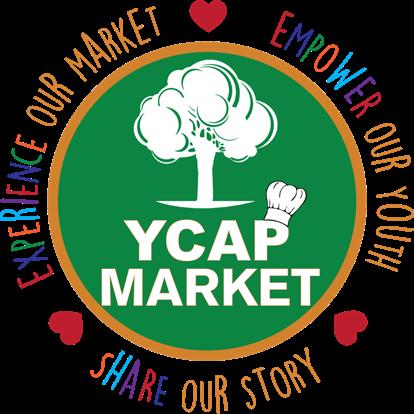
Wood’s Homes has been working in Lethbridge and area since 1986. Among the many services provided today, the agency launched the Lethbridge Opportunity Hub in January 2024 and, in late spring, launched two new Community Group Care programs.
The new Lethbridge Opportunity Hub offers a roster of life-changing services (now available under one roof) that will help those struggling with mental health and addictions. Programs there are designed to build employment skills and provide guidance in accessing resources in the community.
Services include help with:
• Personal development: Building self-confidence, coping with difficult emotions, and setting achievable goals
• Interpersonal development: Learning effective communication and conflict resolution skills
• Life-skills building: Budgeting, time management, selfcare, and community engagement
• Systems navigation: Guidance for mental health, addiction, housing, and general well-being
• Employment support: From readiness and training to job matching and mentorship

An additional nine service beds reflect our ongoing commitment to children and young people in Community Group Care. These programs also help us provide continuity of care alongside our other programs. Clients will be closer to home which will help support permanency, transitioning, and cultural, ceremonial, and community connection.
• Buffalo Circle Community Group Care offers temporary stabilization and support for young people (ages 6 to 17) who are reintegrating into the community after being in a live-in treatment program. These clients will be there anywhere from a few days to six months receiving more support than would typically be offered at home, in kinship, in foster homes, or in therapeutic foster care.
• Strong Winds Community Group Care is a longer-term program (ages 13+) for young people typically under guardianship (temporary/permanent). These clients need more intensive treatment than is typically be offered in a home setting. They likely have previously lived in campusbased programs, or are leaving foster care, and are requiring further therapeutic support.
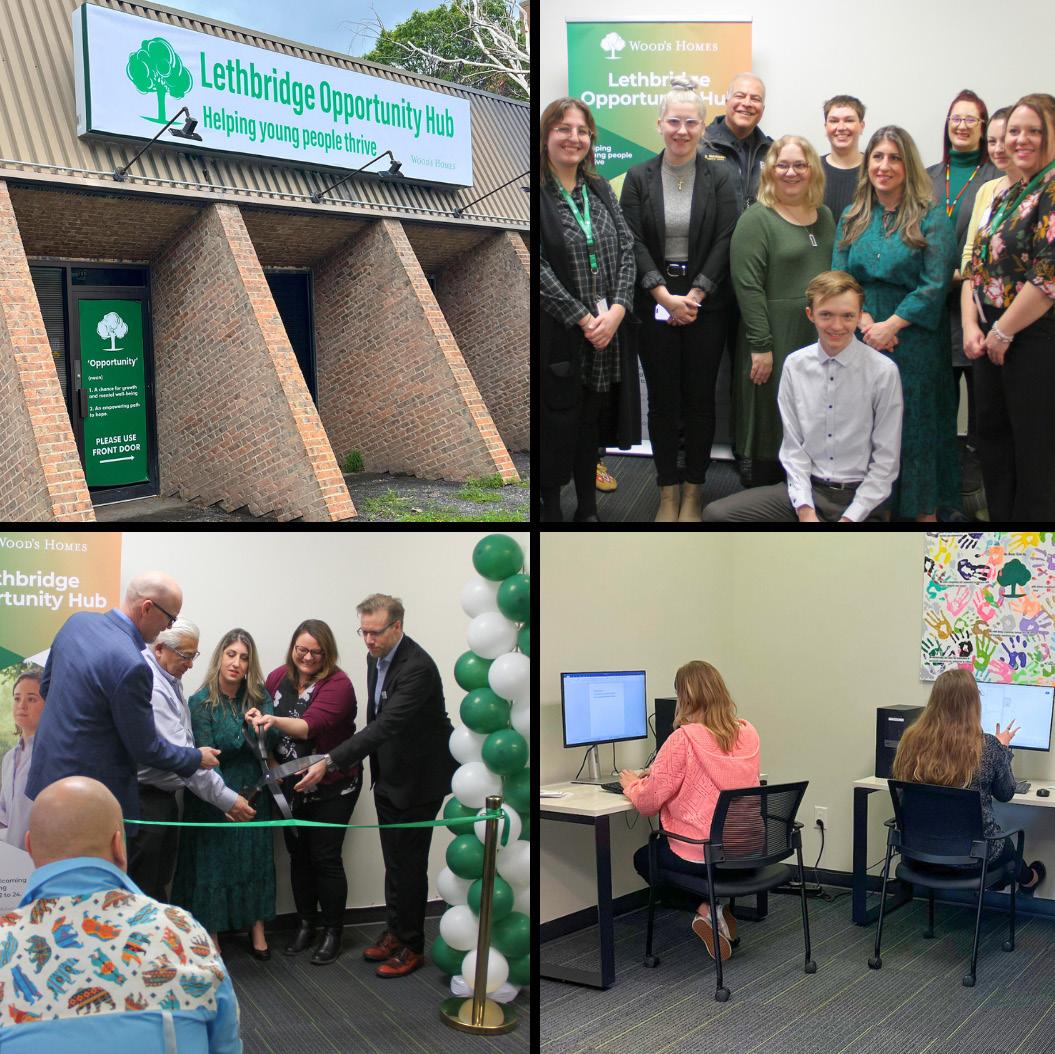
Our Diversity, Equity, and Inclusion (DEI) work symbolizes our ongoing journey of listening, learning, and sharing experiences within our organization. The DEI Working Group, with over 20 Wood’s Homes staff from various programs, has been crucial in amplifying marginalized voices to enhance our services, care for our staff, and meet community needs.
This year’s DEI initiatives focused on community building, agency training and new staff orientation, and agency engagement.
Highlights include:
• New DEI training: Embedded in Wood’s Homes Academy, this training links our values and practices to policies and the strategic plan, fostering reflective practice and DEI education. It provides a safe space for staff to thrive together.
• Partnership with Centre for Sexuality: We engaged staff and the board in training to promote respect for gender and sexual diversity, and conducted an agency-wide audit of our policy manual to support the 2SLGBTQ+ community.
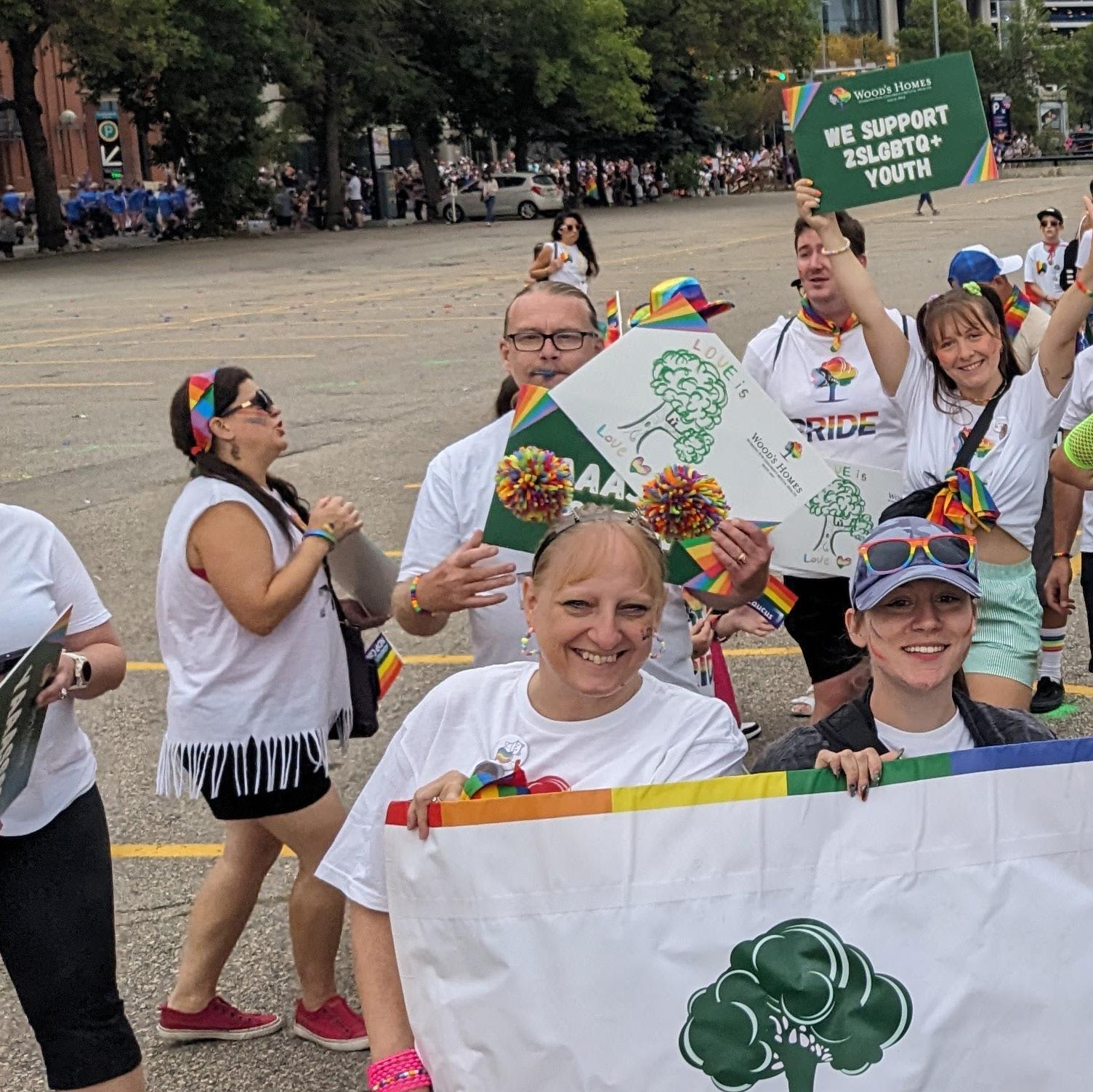
• Cross Cultural Parenting - Post Conflict: We trained staff to support immigrant parents in coping with parenting challenges in a new culture.
• Partnership with the Gateway to Equity, Diversity and Inclusion (GEDI) Hub: We facilitated community conversations with equity-deserving staff to create the Wood’s Homes DEI Framework.
• Community and agency engagement: We hosted events such as Black History Month panel discussions, PRIDE celebrations, our annual Spring Feast, and Indigenous ceremonies.
• Eastside Community Mental Health Services: Our crisis counsellors and therapists provided no-cost therapy services in over 10 languages.
DEI is a cornerstone of our organizational identity and one of our core values. By embracing DEI, we have seen enhanced innovation and employee engagement, more balanced decision-making, and a strong commitment to learning. DEI at Wood’s Homes is not just a policy, but a vital aspect of creating a vibrant, dynamic, and resilient organization prepared to thrive in an increasingly diverse and interconnected world.
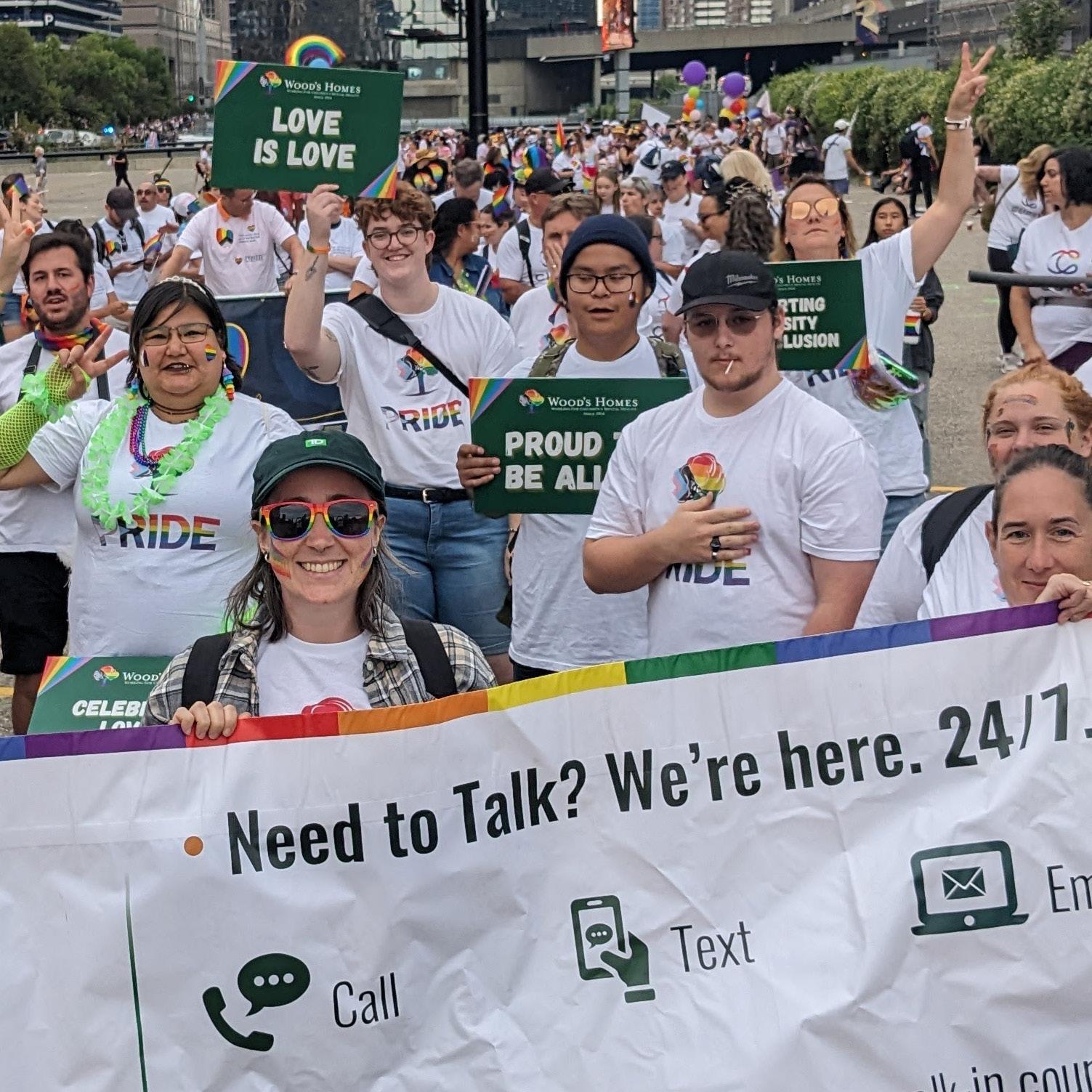
Wood’s Homes provides free mental health and addictions support, health information, and referrals at its three new Wellness Desks in the Central Library, Crowfoot Library, and Shawnessy Library. Initially available only a few days a week, these services, (which are free) are now available every day to address growing demand.
Free walk-in counselling is also available at Eastside Community Mental Health Services (ECMHS) - a flagship program our agency founded in 1990. ECMHS also offers mobile crisis support, text, and LiveChat counselling and is located in Calgary’s northeast.
Eastside services are built on three pillars:
• Call, text, and chat services
• Mobile family crisis support
• Single-session therapy
2023 at a glance
370 hours of mental health and addiction support
2,635 hours of support provided via phone, text, and LiveChat
1,720 single-session therapy sessions
270 family crisis visits

If you are struggling with mental health issues, or suspect that someone you know is struggling, please call us at 403-299-9699 or visit us at woodshomes.ca.




I arrived at Wood’s Homes in May 2017 to take on the role of Research Chair in Children’s Mental Health (a partnership with the University of Calgary’s Faculty of Social Work). Hard to believe I’m in my seventh year of what can best be described as my dream job. I am thankful to be continuing my mission to improve services for traumatized children and parents experiencing mental health challenges.
Typically, chairs are provided a one-year sabbatical midterm, but COVID-19 got in the way of that. Instead, I began my Research and Scholarship Leave from the U of C in July 2023. In that time, I have visited many countries to present at various conferences.
Among the highlights of these past few months is the progress we are making in implementing simulation training models for people working with vulnerable youth. In a nutshell, this model – called Virtual Gaming Simulation (VGS) - offers online virtual training for mental health workers. It promotes learning through actively making choices, then observing the outcomes attached to those choices. Workers are able to directly participate in this situational learning, as opposed to simply reading about how to manage certain challenges.
This work has led to a number of exciting opportunities. I was honoured to receive the University of Calgary Teaching Award in Experiential Learning for creating the VGS training model. My team and I were celebrated for enhancing the knowledge and empathy of trainees who will be working in the mental health sector. The team at Wood’s Homes put together a descriptive video. Learn more about the VGS training on the Wood’s Homes YouTube Channel.
I was thrilled to present this VGS initiative at conferences in Ireland, Iceland, Finland, Sweden, and Denmark – but also closer to home in places like Edmonton (the ALIGN conference) and Winnipeg (the Prairie Child Welfare Consortium Conference).
In Panama, I presented on the use of VGS in social work education at the Joint Conference on Social Work, Education, and Social Development. In Montreal, I connected with fellow researchers at the Trauma Symposium, looking at ways we can continue to use simulation to improve the mental health services that children and youth receive.
We then began to pilot and test the best ways to do SingleSession Training (SST) using VGS. By the end of the year, we hope to have completed the accompanying Digital Learning Guide and to see VGS put into regular practice. We’ve been accepted to present our SST scenario at the 2024 SIM Expo in Banff this coming November!
Best of all, I received a two-year grant to research the use of VGS in improving practitioners’ relational and reflective practices which will also inform the efficacy of this innovative training tool.
VGS isn’t the only way that I’m making an impact on how students and practitioners learn. In India, I participated in an Academics Without Borders initiative, where my colleague and I spent 10 days teaching new scholars skills in child and youth focused research. Then we returned in May with eight undergraduate students from a variety of disciplines at the U of C for an International Group Study Program looking at children and families in context in Canada and abroad.
I also continue to engage in community training initiatives that support how young people experience their lives in care. Last fall I gave a workshop to the Ontario Foster Parents Society on the impact of intimate partner violence on young people to assist in their challenging work of supporting children in their care. I also delivered a practical skill-building course to practitioners from across Canada in trauma-informed approaches to working with children and youth.
All of these initiatives have been fuelled by our research that puts the experiences of young people at the forefront of our process through youth co-researcher opportunities.
Best,
Dr. Angelique Jenney, PhD
Wood’s Homes Research Chair in Children’s Mental Health
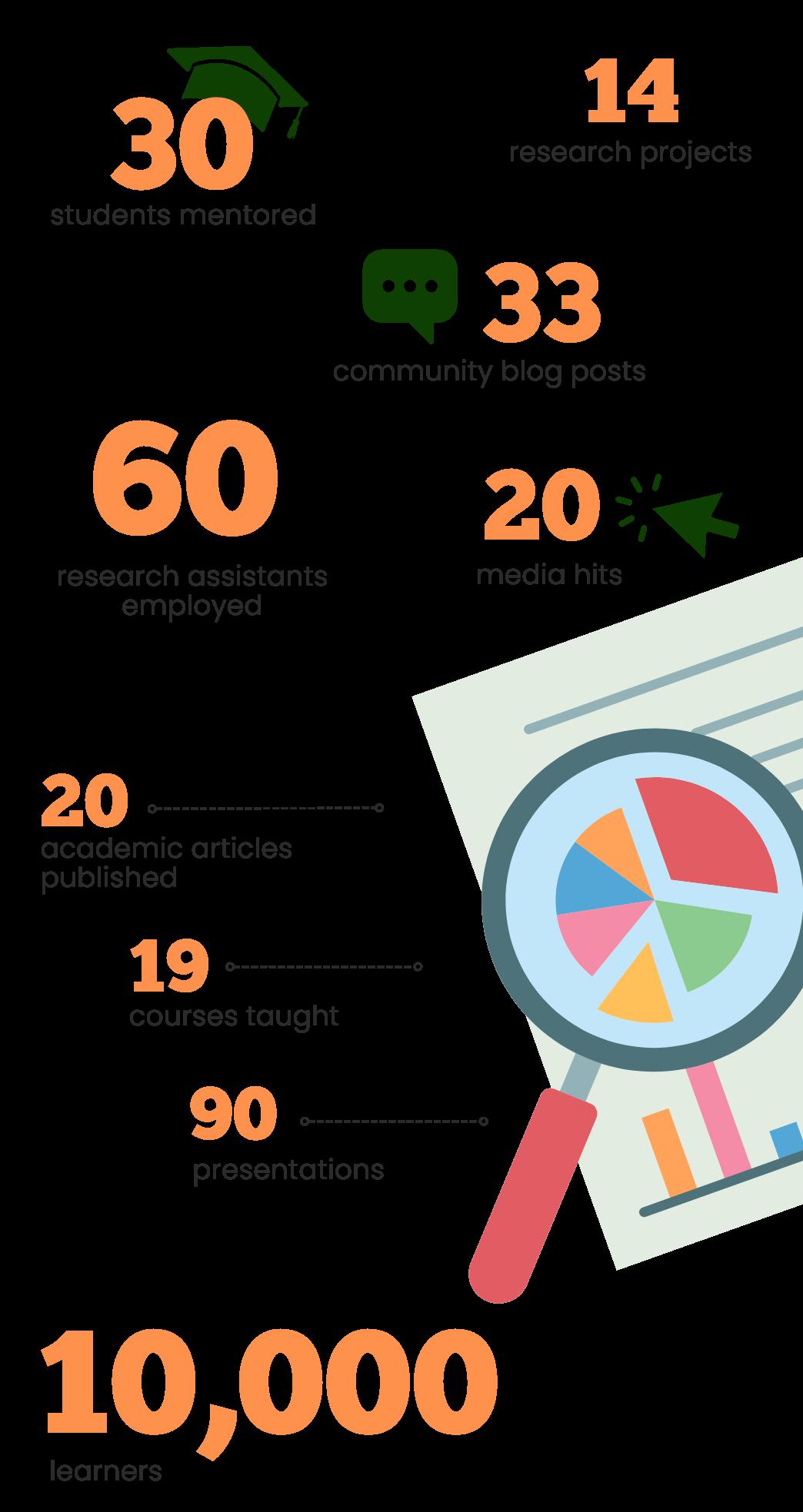


Wood’s Homes undertook a significant review of its values in the writing of our 2023-2028 Strategic Plan. Events of the last few years, and the learnings derived from our journey to improve safety across the agency, are now firmly embedded within these values.
The Strategic Plan guides us in our ongoing and neverending commitment to safety. It must be one of continuous improvement. We are coming to understand the benefits and challenges, of building and realizing an effective Health and Safety Management System.
We have learned that navigating change can be daunting, but that step change is achievable.
Highlights include:
• An audit by the Alberta Worker’s Compensation Board recognized our progress over the last three years, and opportunities for improvement were implemented.
• Increased transparency in our safety communication by adding new avenues of internal communication to promote staff engagement.
• A major restructuring of our Therapeutic Crisis Intervention (TCI) training was conducted, including delivery, competency, and certification. (TCI is
designed to help organizations prevent child retraumatization and injury by reducing the need for physical restraint and thereby enhancing safety for both client and staff).
• An updated Workplace Violence and Harassment Policy after years of surveys, focus groups, input from our safety committees, and the CUPE Union.
• Valuable insights via reporting, tracking, and analysis through the Staff Safety Incident Reporting system. Reports are now scrubbed of identifiers and shared monthly across the agency. We have also come to recognize that we must become more adept at collecting and interpreting data.
A couple of years ago, Wood’s Homes made the decision to apply for COR status - awarded to employers who develop health and safety programs that meet established national standards. It is an ambitious goal that is unique to us amongst similar social service organizations, and this experience continues as of June 2024. We remain dedicated to advancing our safety practices to manage the hazards inherent within our work and ensure workplace safety, but our journey cannot succeed in isolation. To be truly successful, the sector must evolve as well, and Wood’s Homes will continue to advocate for and champion change.
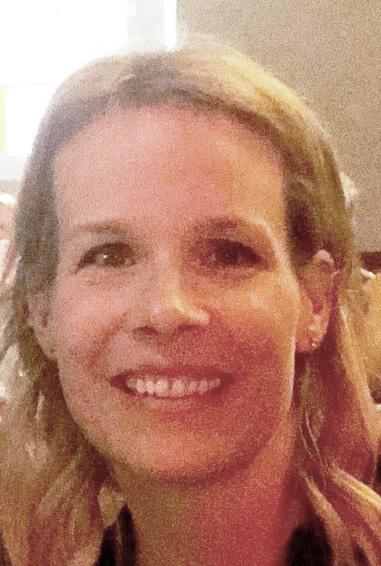

Kimberly Jensen’s company, Choice Contracting, is a long-time supporter of the Wood’s Homes Never Give Up Gala.
In addition to purchasing a table every year for the past 10 years, she donates a raffle item to boost the amount of support her company is giving Wood’s Homes.
“It’s such an essential organization and there unfortunately just aren’t enough of these services, or funding from government, it’s critical that businesses like us step up and do what we can,” says Kimberly.
While the gala is about fun and celebration, for Kimberly, supporting Wood’s is also personal. Her daughter was in and out of hospital with mental health issues for three years. She saw at least half a dozen different psychiatrists, in addition to countless other therapists and psychologists.
“It was so frustrating. Everybody told us something different, our goal over those three years was just to get a diagnosis,” says Kimberly. “After that, we thought life would be good. We would know what we needed to do and how to move forward.”
But, as the family discovered, that’s not how mental health struggles work. “By the time we ended up utilizing the services at Wood’s Homes, we were all at our wits end and exhausted,” says Kimberly.
It was when her daughter was referred to the Wood’s Homes Exceptional Needs program at the age of 12 that the family started to find ways to work through things.
“They spent time with her one-on-one, they gave us the tools to communicate with her, they sat alongside us and gave us the skills we all needed, and they helped us through mediated meetings together,” says Kimberly.
Now 22 years old, Kimberly’s daughter is studying at university. “She still has her mental health struggles, and speaks with a therapist regularly, but she’s doing her thing at school and actually doing really, really well,” says Kimberly.
Getting a bit emotional, Kimberly says her daughter’s life isn’t necessarily the one she would’ve chosen for her, but credits Wood’s Homes for helping them get to this point. “It’s definitely not an easy path that she walks, but it’s better than the alternative that many kids face without the opportunity to get the help that we did.”
Kimberly says they arrived at Wood’s homes feeling very lost. “It’s funny, we showed up there – adults with established careers, but in crisis - and these young staff members were just so honest and real, but kind at the same time. They provided exactly what we needed. It was incredible. And we will be forever grateful.
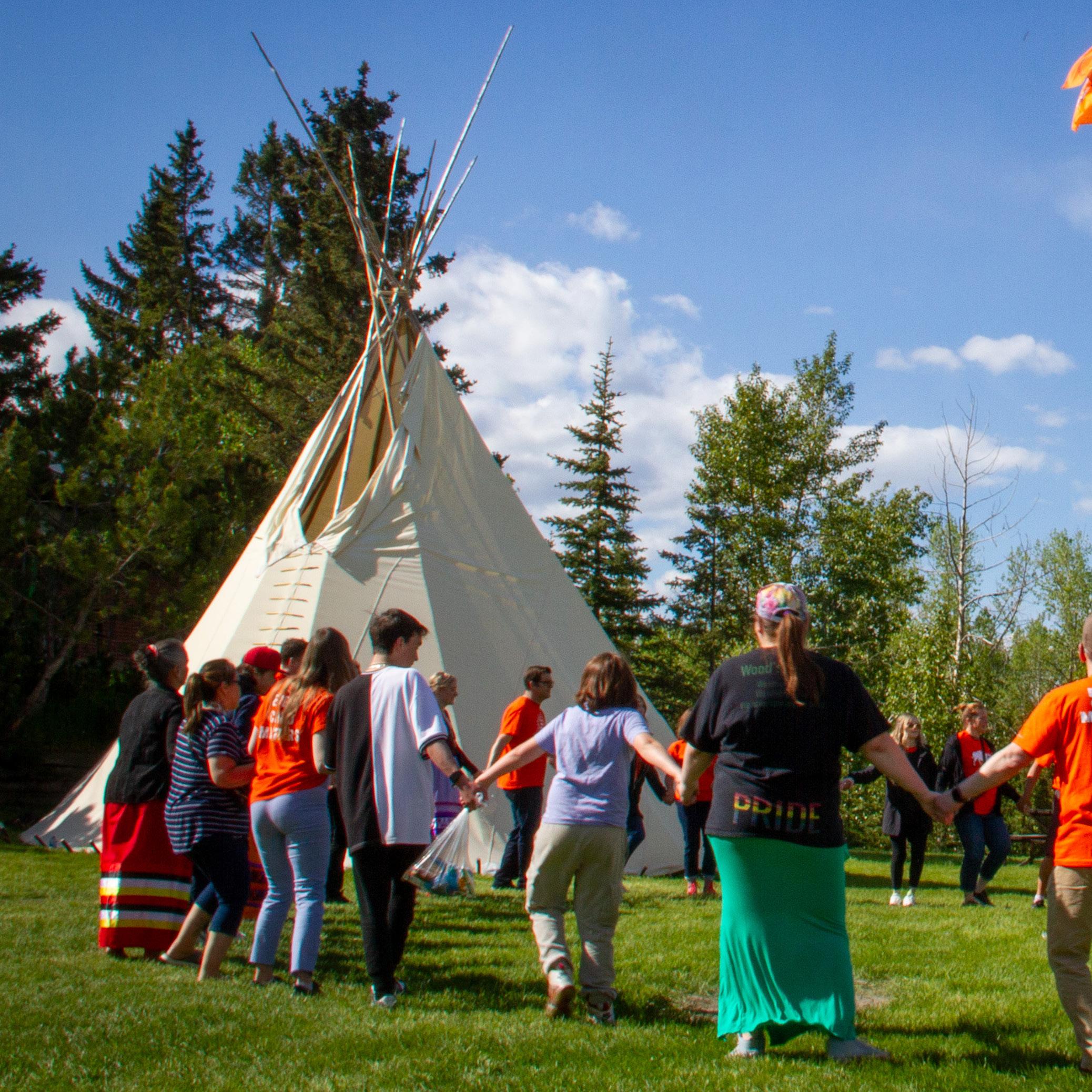
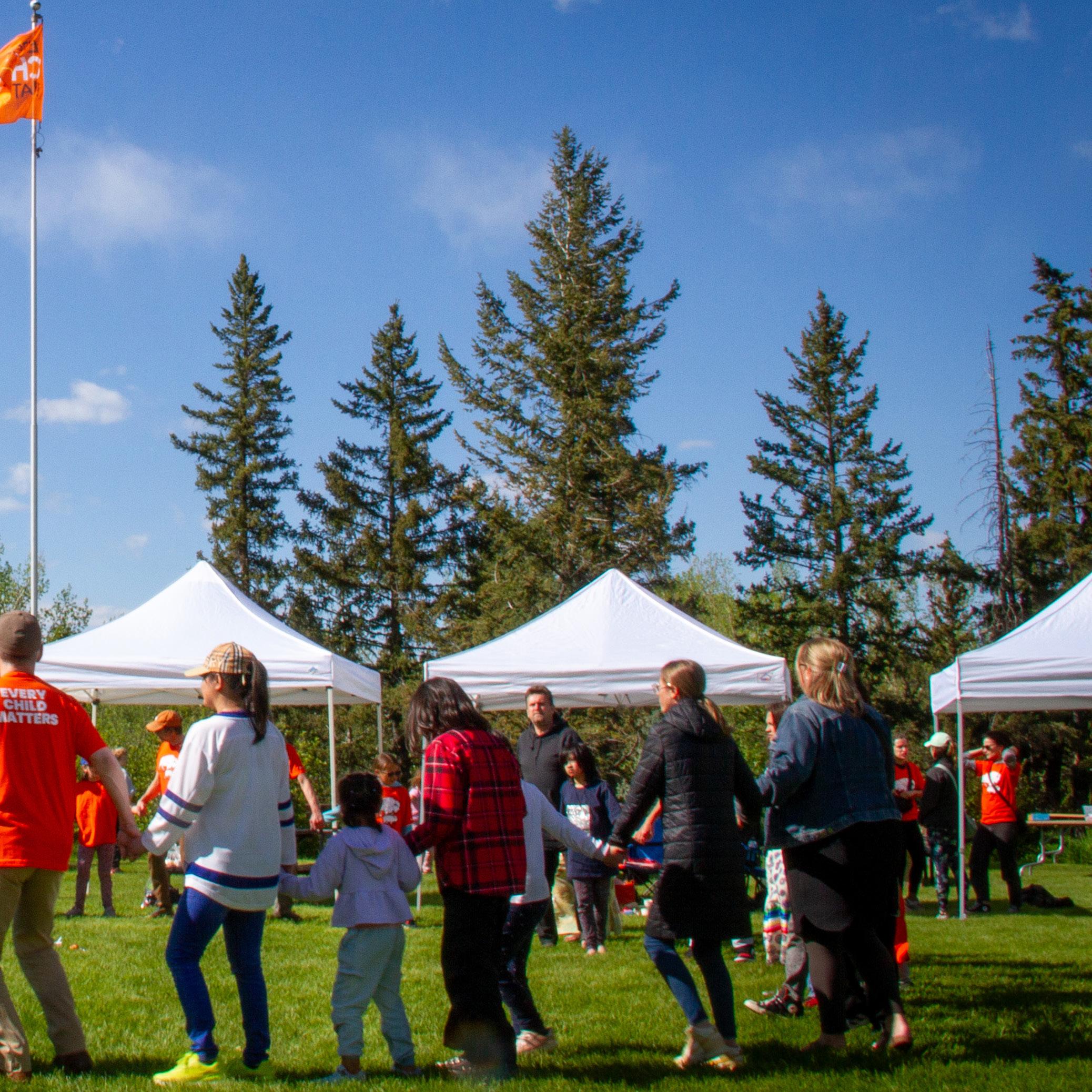
We support the creation of the good life

Wood’s Homes is excited to announce the launch of the Indigenous Initiatives Centre on our campus in Calgary’s northwest community of Parkdale.
It is a contemporary, culturally-sensitive space for the newly created Indigenous Initiatives Team, with a goal to enhancing our efforts to be better allies.
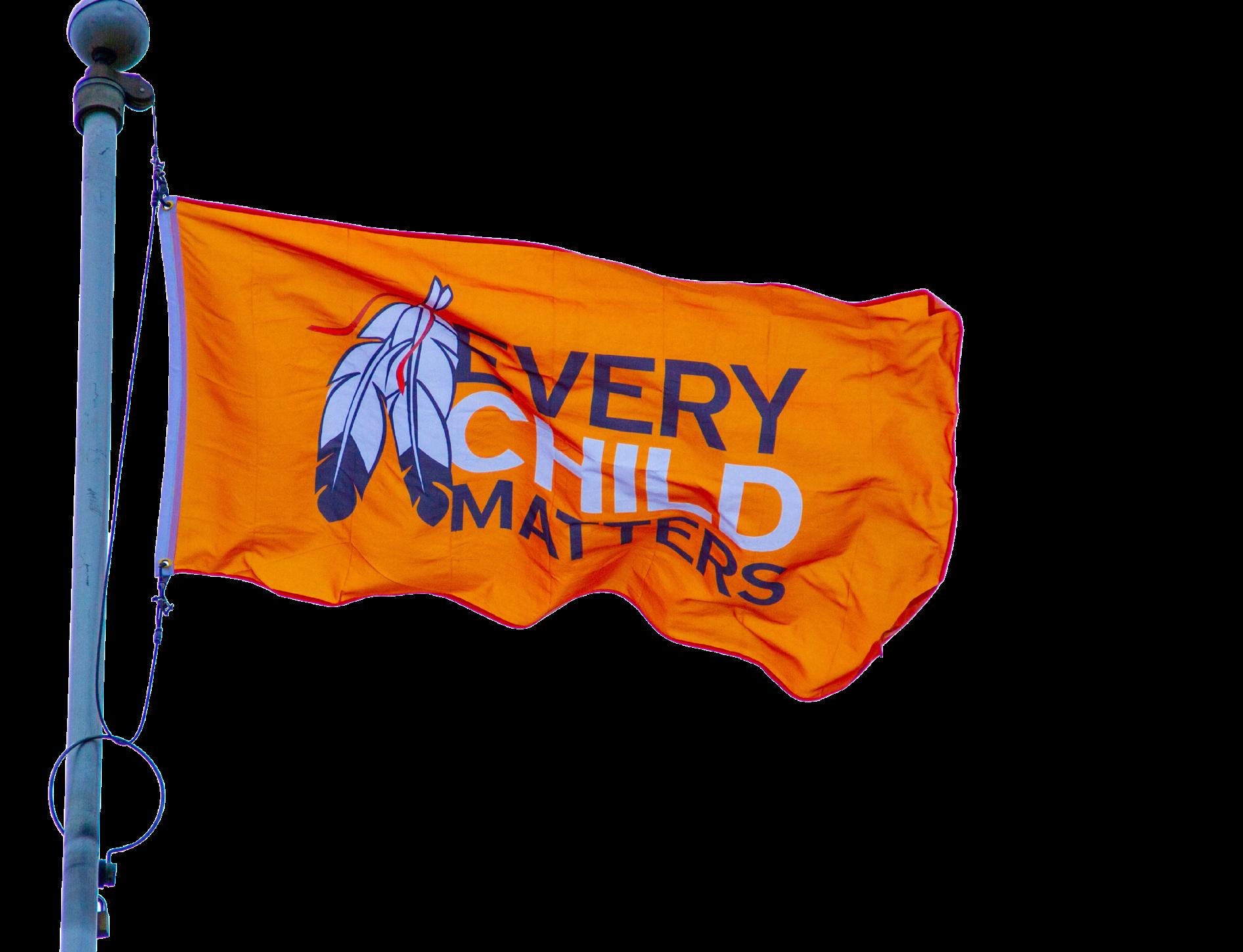
The team will pour their collective energies into the development of the following four important

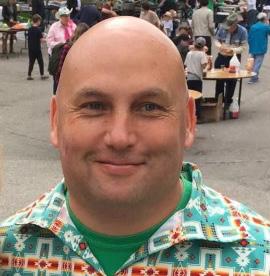

This year has brought many blessings to the Wood’s Homes community. We can feel a positive culture shift as we continue to learn about Indigenous ways in Alberta.
This shift is evident in our 2023-2028 Strategic Plan, our values, and the culturally safe spaces created across the agency.
As we deepen our connection and understanding, we become more responsive to the needs of Indigenous children, young people, and families. This is reflected in increasing access to ceremonial practices and our interconnections with many Sweat Lodge Communities and Elders. The guidance we receive at ceremonies is invaluable, and we are fortunate to have our own tipis for young people to learn about Indigenous knowledge.
Land-based learning remains vital, especially for students at our William Taylor and George Wood Learning Centres.
In 2022, we created the Indigenous Allyship Toolkit, outlining our commitments and actions driving important changes. Listening to young people, families, and communities is key to being good allies.
Continuous reflection on our impact is crucial to our learning journey. Our newly formed Indigenous Initiatives Team has positively impacted several areas across the agency. The openness in communication and respect for the culture is greatly appreciated.
We could not achieve this without our Elders and Knowledge Keepers, who are instrumental to our ongoing learning. We will keep you in our prayers for good health and wellness as you support those in need of your guidance.
I look forward to the next four seasons of change, development, and connection in 2024/2025.
Kinanâskomitin – Thank you!
Filled with gratitude,
Matotisân asinîy Tye Rhyno Manager, Indigenous Initiatives
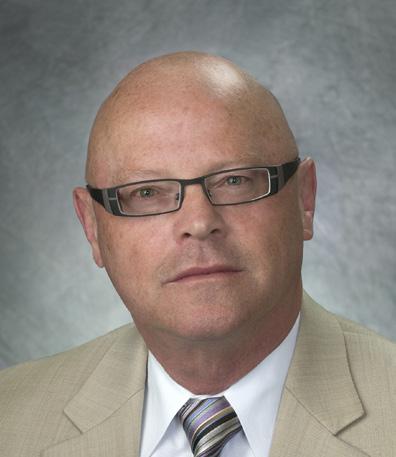

Terry Cotton’s connection as a volunteer with Wood’s Homes spans over two decades, and is marked by dedicated service and support. Known for his humility, humour, and deep commitment,
Terry is a founding member of the Wood’s Homes Foundation Board and was Chair for a time. He is a familiar face across the agency, known for being a generous donor and volunteer.
Terry’s introduction to Wood’s Homes was through friends who saw a great fit. “It was a challenge in the early days,” Terry recalls, noting how Wood’s Homes was wellknown in mental health circles but less so in the broader community.
Beyond board duties, Terry has volunteered at several events over the years, including the long-time (defunct) golf tournament, the Wood’s Homes casino fundraiser, the Never Give Up Gala, and the Stampede Breakfast.
For Terry, “Wood’s Homes is a bit of a ‘family,’” he says, recalling how much he learned about mental health and treatment services over the years.
“What has always stood out for me is the willingness of staff to teach not only me, but all board members, about Wood’s Homes and mental health. And it’s not just the staff either. Young clients have attended board meetings.
I’ve interviewed kids directly. I’ve gone to the movies with them. We’ve gone to hockey games. The reactions of these kids being taken to hockey games that they could never attend in that style is incredible. One law firm in particular who offered box seats to these children said “we will treat these children as if we are signing a deal with them” and they were served the same food as the executives. That’s an unforgettable experience for the kids.”
One poignant memory involves a young boy in one of the live-in treatment programs, who, despite being withdrawn, opened up to Terry. “For some reason, he ‘cottoned’ on to me,” Terry recalls, a connection that deeply moved him.
Terry emphasizes the importance of giving back, especially for those who have lived privileged lives.
He says, “If you have something, you give it.”
Retired from the board, Terry remains an integral part of the Wood’s Homes community. And, as he reflects on his time with the agency, he continues to be modest. “It was a good 20 years of my life that I had fun doing,” he says. His legacy, however, speaks volumes, leaving an indelible mark on the agency and the lives of those he touched.
Wood’s Homes holds Terry in the highest esteem, not just for his contributions, but for his loyalty and dedication to the children we serve.


Today, I am filled with immense gratitude as I express our collective appreciation for your unwavering support of Wood’s Homes.
Throughout the past year, we have undertaken the monumental tasks of kickstarting an essential capital campaign, accelerating the groundbreaking work of our Wood’s Homes Research Chair for Children’s Mental Health, and extending mental health support beyond our physical walls. Your generosity has been nothing short of remarkable.
Just as the roots of a mighty tree anchor it firmly in the soil, our donors play a vital role in supporting individuals facing mental health challenges.
Anchoring stability: Your contributions create a foundation for mental health services, ensuring that those in need have a safe place to turn.
Nourishing support: Like a tree draws nutrients from the soil, your gifts nourish mental health programs. By giving generously you enable counselling, therapy, and resources that sustain individuals during their struggles.
Weathering storms: Your support helps people weather life’s emotional storms, providing hope and strength even when conditions are challenging.
Deep-rooted Impact: Your gifts reach deep, fostering emotional well-being, promoting awareness, and breaking down stigma surrounding mental health.
As we celebrate Wood’s Homes’ 110th anniversary, we reflect on our rich history and the world-class mental health organization you’ve helped build over the past century. Our journey began as a seed in 1914, and today, Wood’s Homes stands tall and mighty as a forest of hope and healing.
Evidence of your impact is visible in the growth of our programs across seven Alberta communities, especially in Lethbridge and Calgary. Your generosity has allowed us to expand our services, whether in Community Group Care or via the new Lethbridge Opportunity Hub.
I would like to highlight our ‘Through It All’ capital campaign which aims to raise $40 million to replace outmoded facilities and increase our capacity to help. It’s a crucial initiative that will significantly impact the lives of those we serve.
Once again, thank you for your transformative giving. We are deeply grateful for your partnership and look forward to continuing this vital work of building good mental health and wellbeing together.
Warm regards,
Bryan Goehringer Director of Wood’s Homes Foundation

April 1, 2023 – March 31, 2024
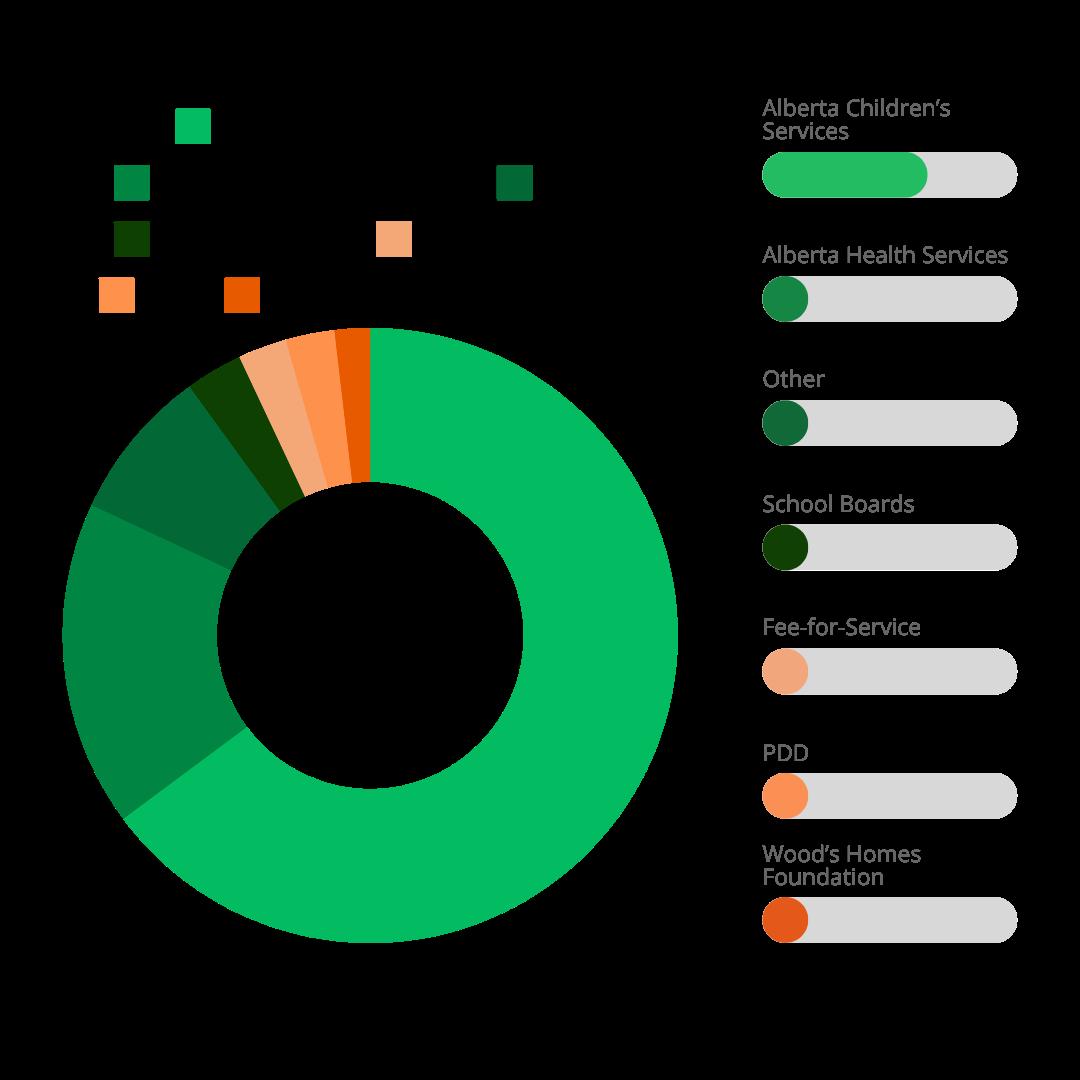
We pour the foundation so young minds can build better tomorrows.

